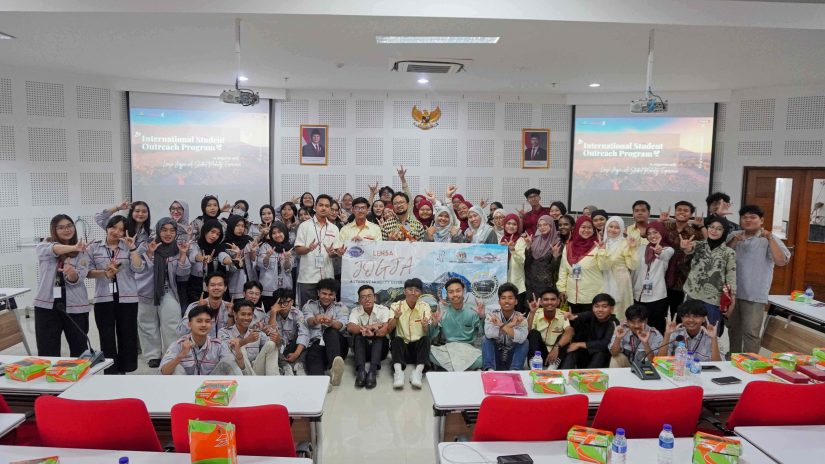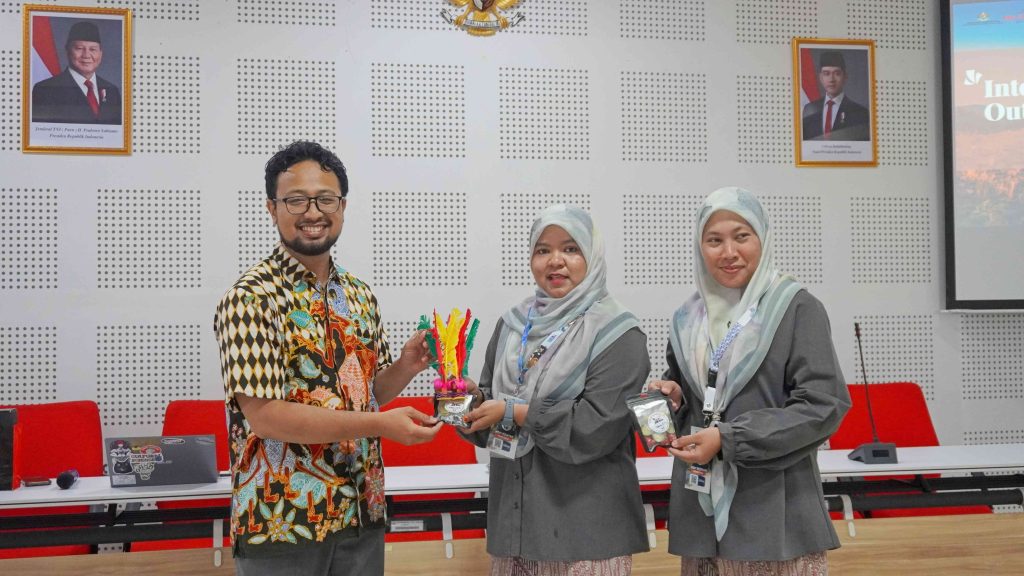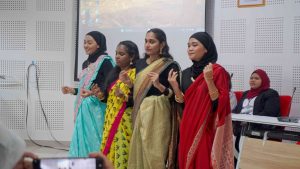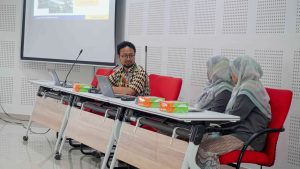
As part of its commitment to expanding its international network and enhancing the quality of education, the Tourism Study Program at Universitas Gadjah Mada (UGM) received an official visit from Politeknik Ibrahim Sultan (PIS), Pasir Gudang, Malaysia. The event, titled “Loka Waris,” was an academic collaboration designed and independently executed by fourth-semester students of the Diploma in Tourism Management (DUP) program from the Department of Tourism and Hospitality (JPH) at PIS. This visit marked a significant moment in strengthening relations between the educational institutions and opening opportunities for cooperation in tourism and hospitality, as well as serving as a form of cultural exchange.
The event that was held on April 24, 2025 was also accompanied by two lecturers from DUP PIS, Puan Nur Hidayah Binti Zulkifli and Puan Hajah Wan Rosnani Binti Mohamad. Puan Nur Hidayah explained that the visit was part of the assessment for the Tourism Expedition course, which requires students to be able to effectively plan and execute a tour, particularly in the context of an international outreach program. Furthermore, she added that the activity was also part of the evaluation for the Event Operation and Management course, which aims to hone students’ competencies in professionally designing and managing an event.
 The activity was opened by introducing the curriculum and learning methods of each study program that directly support the achievement of SDG 4: Quality Education by providing practice-based and cross-cultural learning experiences that enrich student skills.. Through entrepreneurship and event management training, the event also contributes to SDG 8: Decent Work and Economic Growth by equipping students with skills relevant to the workforce in the tourism and hospitality sector. On the other hand, the innovative approach in program design, including the integration of technology and creativity, reflects the spirit of SDG 9: Industry, Innovation, and Infrastructure, especially in encouraging innovation and strengthening students’ capacity to generate creative solutions at an industry level.
The activity was opened by introducing the curriculum and learning methods of each study program that directly support the achievement of SDG 4: Quality Education by providing practice-based and cross-cultural learning experiences that enrich student skills.. Through entrepreneurship and event management training, the event also contributes to SDG 8: Decent Work and Economic Growth by equipping students with skills relevant to the workforce in the tourism and hospitality sector. On the other hand, the innovative approach in program design, including the integration of technology and creativity, reflects the spirit of SDG 9: Industry, Innovation, and Infrastructure, especially in encouraging innovation and strengthening students’ capacity to generate creative solutions at an industry level.
 The students of the Diploma in Tourism Management (DUP) at Politeknik Ibrahim Sultan designed “Loka Waris” as a Malaysian cultural exchange agenda, packaged through activities based on cultural heritage and traditional games. This event aimed to introduce and promote Malaysia’s cultural heritage to the UGM academic community, while also strengthening international relations through a cultural approach.
The students of the Diploma in Tourism Management (DUP) at Politeknik Ibrahim Sultan designed “Loka Waris” as a Malaysian cultural exchange agenda, packaged through activities based on cultural heritage and traditional games. This event aimed to introduce and promote Malaysia’s cultural heritage to the UGM academic community, while also strengthening international relations through a cultural approach.
“Loka Waris” featured two main highlight events: Loka Glam and Loka Mania. Loka Glam centered on a fashion show concept to display the beauty of traditional Malaysian attire blended with a modern and stylish touch. In addition to the fashion show, the agenda also included a dance performance as a form of appreciation for local heritage and an expression of Malaysian cultural identity.
Meanwhile, Loka Mania presented traditional games such as Batu Seremban and Chapteh, which were played interactively with the participants. These games not only served as a means of entertainment but also introduced the cultural values and sense of community embedded in Malaysian traditions.
Puan Nur Hidayah Binti Zulkifli stated that the activity had a positive impact on the students, particularly in terms of cultural adaptation and understanding different learning systems. “The impact of this activity is that students can adapt to the culture here and observe that the learning systems are quite different. Over there (at the polytechnic), it’s more practical, whereas at UGM, it’s research-focused, the character is different,” she remarked.
Puan Nur Hidayah Binti Zulkifli also expressed her hope that by observing the learning process at UGM firsthand, the students could learn valuable lessons and apply them in their future lives and careers. Furthermore, she noted that the visit opened up opportunities for further studies. “The structure of the syllabus and curriculum (at UGM) is interesting,” she affirmed. The use of both Indonesian and English in the learning process was also seen as an added value that could facilitate academic communication in the future.
 Thus, this visit also served as a strategic moment for building international relations between educational institutions. Through this cross-national collaboration, both institutions contribute to supporting the achievement of the Sustainable Development Goals (SDGs), specifically SDG 17: Partnerships for the Goals. This activity reflects a collaborative spirit in enhancing the quality of global learning and strengthening sustainable international partnership networks.
Thus, this visit also served as a strategic moment for building international relations between educational institutions. Through this cross-national collaboration, both institutions contribute to supporting the achievement of the Sustainable Development Goals (SDGs), specifically SDG 17: Partnerships for the Goals. This activity reflects a collaborative spirit in enhancing the quality of global learning and strengthening sustainable international partnership networks.




